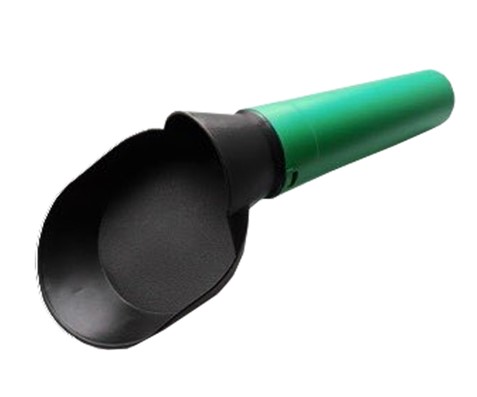Artificial intelligence will take care of the well-being of chickens

Artificial intelligence that could improve the well-being of farmed chickens by eavesdropping on their cries could be available within five years. A new study has found that technology that detects and evaluates distress calls made by chickens kept in huge enclosed spaces correctly distinguishes them from other sounds with 97% accuracy, The Guardian reported on June 29.
Around 25 billion chickens are raised around the world each year, many of them in huge sheds. One way to assess the well-being of such creatures is to listen to the sounds they make. “Chickens are very vocal, but the distress call is usually louder than others,” says Alan McElligott, assistant professor of animal behavior and welfare at the City University of Hong Kong.
Theoretically, farmers themselves could listen to the calls of chickens to assess the level of their anxiety and, if necessary, take the necessary measures. However, in commercial chicken coops containing thousands or tens of thousands of chicks, human supervision is not practical. First of all, because their presence can cause even more tension, and because with such a large number of birds, an objective quantitative assessment of the number of distress calls is impossible.
Instead, based on recordings that were manually classified by human experts to determine what type of sound they represented, McElligott's team developed a deep learning tool to automatically identify chick distress calls.
According to an estimate published in the Journal of the Royal Society Interface, the algorithm correctly identified 97% of distress calls.
Convincing farmers to adopt the technology can be relatively easy, the newspaper notes. Previous research by scientists has shown that the distress signals emitted by young chickens can predict the amount of weight gain and the number of deaths in the entire flock over its lifetime.
Similar technology could be applied to monitor other farm animals, especially pigs or turkeys, which are also often kept indoors and "talk very loudly," the developers said.
Read together with it:
- О самых распространенных причинах пожаров рассказали в МЧС2 октября, Минск. О самых распространенных причинах пожаров рассказал начальник главного управления надзора и профилактики МЧС Дмитрий Турчин на "Предупреждение чрезвычайных ситуаций в осенне-зимний период. Профилактика пожаров и гибели людей от них", которая прошла в БЕЛТА. "В республике наблюдается рост количества пожаров на 7,7%, и на 1......
- A Rostov broiler farmer was fined 750,000 rubles for selling meat contaminated with salmonella.The lawsuit against the poultry farm was filed by ROSSELKHOZNADZOR based on the results of an inspection that revealed serious violations of the production process. These included rust on metal structures, which compromised product quality, and unsanitary conditions that facilitated the growth of pathogenic microflora. A batch of Blagoyar pork legs with the backbone proved particularly dangerous, ...
- Фермер из Увата получил грант на строительство мясоперерабатывающего заводаПолученные средства будут направлены на строительство производственных мощностей для переработки мяса абердин-ангусов и овец породы дорпер. В планах фермерши - начать выпуск высококачественной говядины, баранины и полуфабрикатов, а также обеспечить местное население Уватского округа продукцией собственного производства с 2......
- Премьер Финляндии призвал ЕС быть оборонным союзом, а не торговым блокомЧтобы избежать потенциальной угрозы от «враждебных государств», Евросоюз должен укреплять оборону и сотрудничать в данной сфере, заявил финский премьер Орпо. Он отметил, что это не будет значить, что Брюссель «вытесняет» НАТО Петтери Орпо Евросоюз должен взять на себя «беспрецедентные полномочия», чтобы защититься от «растущих угроз». Об этом сказал премьер-министр Финляндии Петтери Орпо, сообщает...
- "Cardboard Superpower." What is Poland prepared to take into 2026?Photo: Unsplash The Polish government has submitted its draft 2026 budget to the Sejm. In short, the hole in the Polish budget is growing even wider, and the national debt is on the verge of skyrocketing. Meanwhile, military spending is breaking records, cementing Poland's status as NATO's leader in defense spending as a percentage of GDP. However, the value of such leadership is questionable. Or ...
- В Приморье владельцу коз вынесено предупреждение за игнорирование ветеринарных мероприятийПо информации управления, владелица частного подворья, Чернуха Г.В., отказалась предоставить для осмотра и проведения ветеринарных процедур 14 коз. Согласно российскому законодательству, владельцы животных несут ответственность за их здоровье и обязаны проводить профилактические мероприятия, направленные на предупреждение болезней. В управляющем органе подчеркивают, что владельцы животных обязаны ...
- Советы по борьбе с опасными заболеваниями животных: страны СНГ предпринимают совместные мерыВ рамках подписанных документов установлены три ключевых направления совместных действий: Профилактика и борьба с бешенством. Профилактика и борьба с ящуром. Профилактика и борьба с гриппом птиц и болезнью Ньюкасла. Цели данных инициатив включают предотвращение распространения заболеваний, снижение экономического ущерба, а также защиту здоровья человека. Реализация этих мероприятий требует координ...




























































